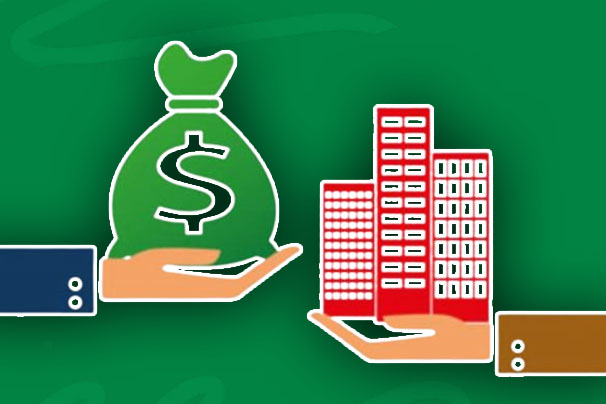Undoubtedly, bankruptcy is a daunting and burdensome financial event that can come with substantial consequences on your financial stability and creditworthiness. Furthermore, many people have experienced bankruptcy and wonder if they can ever get a mortgage again. This leads to the question: Can you get a mortgage after bankruptcy? The good thing is that although bankruptcy can make the mortgage application procedure complicated, it does not mean that homeownership is completely unattainable.

In the meantime, it is important to understand the effect of bankruptcy on your mortgage options and find out how to maneuver the process to reach your homeownership goals despite your previous financial issues. With this in mind, let us delve into finding out whether getting a mortgage is possible after bankruptcy.
Can You Get a Mortgage After Bankruptcy?
Certainly, it is 100% possible to get a mortgage after a history of bankruptcy. However, compared to the standard application process, this process might be more complicated. This is because bankruptcy can affect your financial profile and credit score significantly.
This also makes mortgage lenders careful. Nevertheless, some lenders are still willing to offer their services to people with past bankruptcy history, especially if they have a stable income following the bankruptcy and can prove financial responsibility.
Generally, post-bankruptcy mortgage applications come with stricter credit requirements and longer waiting periods. In addition to this, the bankruptcy and behavior after this event can affect your terms and eligibility.
Types of Mortgage to Apply for After Bankruptcy
There are different types of mortgages that you can apply for after bankruptcy. However, keep in mind that these mortgage types have different benefits and eligibility requirements:
USDA Loans
The type of loan is used for suburban and rural home purchases. Moreover, they offer assistance to low- and moderate-income buyers. However, the eligibility requirements for this loan type for Chapter 13 bankruptcy are one year, while Chapter 7 is three years.
FHA Loans
An FHA loan is also known as a Federal Housing Administration loan. And is the most accessible option for people with a history of bankruptcy. Apart from this, they have shorter waiting periods and favorable credit score requirements.
Conventional Loans
As for conventional loans, they usually have stricter credit requirements and are not guaranteed or insured by the government. Meanwhile, if you show stable financial behavior and improve your credit score, you can increase your chances of getting approved.
VA Loans
For active-duty or veteran service members, you might be able to qualify for a VA loan. Besides, VA loans are guaranteed by the Department of Veterans Affairs. And provide advantageous terms like no private mortgage insurance and a down payment.
How Long After Bankruptcy Can You Get a Mortgage?
The waiting time to apply for a mortgage after bankruptcy depends on the type of mortgage and the type of bankruptcy filed. Here is a table explaining this better:
| Bankruptcy Type | Conventional Loans | FHA Loans | VA Loans | USDA Loans |
| Chapter 7 | 4 years from discharge date | 1 year from the discharge date | 1 year from the discharge date | 3 years from discharge date |
| Chapter 13 | 2 years from discharge date or 4 years from dismissal | 2 years from the discharge date | 1 year from the discharge date | 1 year from discharge date |
How To Get a Mortgage After Bankruptcy
Although getting a mortgage after bankruptcy is complicated and taxing, it is not entirely impossible and unachievable. If you are interested, here is a guide you can use to successfully obtain a mortgage from any lender:
Prepare Bankruptcy Documents
It is important to gather proof of your bankruptcy dismissal or discharge to indicate how long it has been since your bankruptcy was resolved.
Clean Up Your Credit Report
If your discharged debts are still showing on your credit record, fix a schedule with the lender to provide evidence that everything has been finalized. You also need to prove to the lender that you have been handling your finances since your bankruptcy discharge even though you have limited credit use after this event.
Record Your Discharge Date
You must know your bankruptcy discharge or dismissal date. This is because it is the beginning of the mortgage eligibility waiting period.
Select the Right Loan Program
Choose a good loan program that meets the waiting period and credit score. For instance, you can qualify for a FHA loan if your Chapter 7 bankruptcy discharges with a 600 credit score after 2 years.
Look Around for Lenders
Various mortgage lenders have different guidelines and requirements for bankruptcy. This is why you need to compare multiple options to find the best option and lender for your current post-bankruptcy needs.
Present Additional Proof
You will have to write an explanation letter to a mortgage lender that states that your previous problems that led to bankruptcy will not happen again and that you are ready for a mortgage.
Conclusion
It is essential to be patient after bankruptcy because you cannot get mortgage approval immediately after such an event. Nevertheless, you can work on improving your chances of getting approved for one by managing debt responsibly, rebuilding your credit score by paying bills on time, saving for a down payment, and providing proof of stable income.



